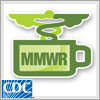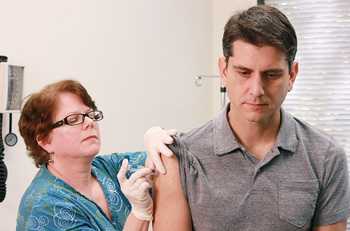Cancer, the Flu, and You
Everyone 6 months of age and older should get a flu vaccine every season.
Living with cancer increases your risk for complications from influenza (“flu”). If you have cancer now or have had cancer in the past, you are at higher risk for complications from the seasonal flu or influenza, including hospitalization and death.
Get Your Flu Shot!
People with cancer or a history of cancer, and people who live with or care for cancer patients and survivors, should get a seasonal flu shot. Immune defenses become weaker with age, which places older people at greater risk of severe illness from flu. Also, aging decreases the body’s ability to have a good immune response after getting a flu shot. Two vaccines are designed specifically for people 65 and older—
- The high-dose flu vaccine contains four times the amount of antigen as the regular flu shot.
- The adjuvanted flu vaccine is designed to help create a stronger immune response to vaccination.
For more information, see What You Should Know and Do this Flu Season If You Are 65 Years and Older.
Many people who are at increased risk for flu are also at increased risk for pneumococcal disease. People with cancer or other diseases that compromise your immune system should ask their health care providers if pneumococcal shots are needed.
What to Do If You Get Sick
Make a plan in advance with your doctor about what to do if you get sick. Flu-like symptoms also can be a sign of a very serious infection that is not the flu and could result in a hospital stay or even death. The plan includes when you should call your doctor and how to get a prescription for antiviral medication quickly if needed.
If you have flu symptoms, stay home for at least 24 hours after your fever is gone except to get medical care or for other necessities. Your fever should be gone without the use of a fever-reducing medicine. Keep away from others as much as possible to avoid making them sick. It’s important for people with cancer to notify their doctor immediately if they get a fever.
Flu Treatment for Cancer Patients and Survivors
CDC recommends antiviral drugs to treat and prevent infection. Antiviral drugs are prescription medicines that stop flu viruses from reproducing in your body. If you get sick, antiviral drugs can make your illness milder and make you feel better faster. They may also prevent serious flu complications.
If you have received cancer treatment such as chemotherapy and/or radiation therapy within the last month, or have a blood or lymphatic form of cancer, call your doctor immediately if you have been within six feet (1.8m) of someone known or suspected to have the flu. Your doctor may give you antiviral drugs to help prevent the flu.
If you have cancer and have not received treatment within the last month, or you have had cancer in the past but are cancer-free now, and you have had close contact with someone known or suspected to have the flu, call your doctor and ask if you should receive antiviral drugs.
Help Prevent the Flu from Spreading
Good health habits can help stop the flu from spreading. For example, cover your nose and mouth with a tissue when you cough or sneeze and wash your hands often.
Featured Resources
Health care providers: Display our “Fight Back! Get Your Flu Shot” poster [PDF-1.5MB] in your office as a reminder for cancer patients.
This video explains easy ways to prevent the flu.

This podcast discusses the importance of getting vaccinated against the flu every year.
- Page last reviewed: December 12, 2016
- Page last updated: September 27, 2017
- Content source:
- Maintained By:


 ShareCompartir
ShareCompartir


